'Nobody wants to employ them' – Cerebral palsy footballers in Ghana dream of bigger stages
)
It’s so refreshing to watch this team train. On the beach sand behind the iconic Black Star Square in Ghana’s capital, Accra, a group of players are being taken through their paces by an instructor.
From jogging to squatting to rondos, they’re doing them all with so much intensity. And the best part is the determination and zeal with which they execute each training drill.
“This is your getaway,” the instructor enjoins one of the players, who looks to be slowing down due to fatigue. “If you work hard, not even your condition can stop you from the future you dream of. Let’s make every sweat count… together!”
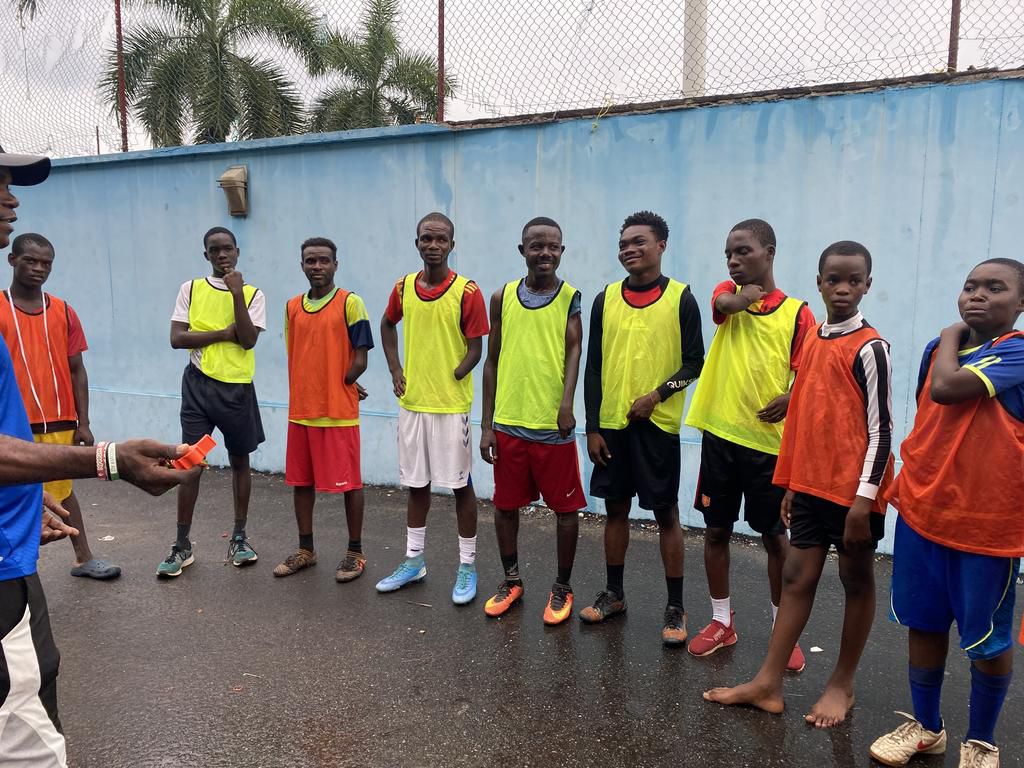
This team is the Ayawaso Cerebral Palsy Football Club and the instructor is Abdul Karim Mustapha, the man who coaches and trains these athletes with special needs.
“It’s a blessing and a calling for me to be able to coach such a great and talented group,” Mustapha tells Pulse.com.gh. “Even with their conditions, they are ready to be able more than the abled people.
“I’ve been coaching for two and a half years now and, from my experience, dealing with persons with disability is work. You have to combine your academics and their techniques; you need to add a bit of psychology to help them.
“It comes with total patience and understanding. They may do things that make you upset, but you have to maintain a happy demeanour, because they at least reacted to whatever you asked them to do.”
Ghana as a country has not been too kind to physically challenged people and by extension para-sports. Access to many public places remains unfriendly to the disabled, while the talented few who opt to engage in sports are usually left frustrated by a lack of support and investment.
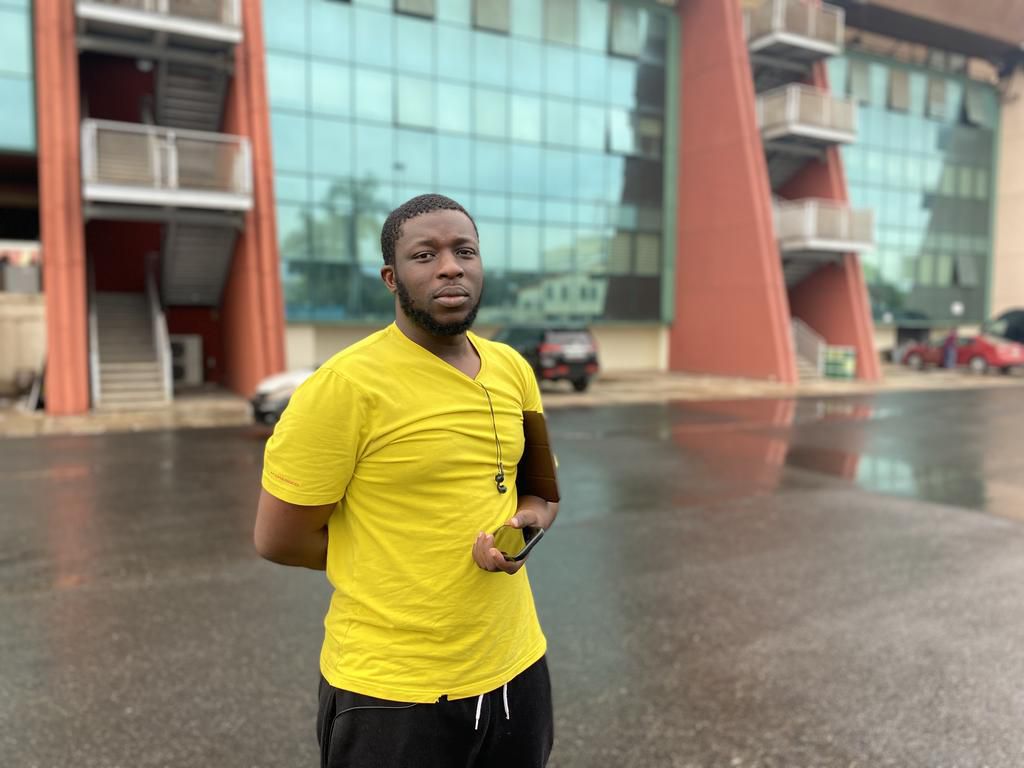
This has been the story of Atsu Abor, who embraced cerebral palsy (CP) football five years ago. Despite his condition, Atsu learned to do many things on his own.
With very mild symptoms, he felt he could play football at the highest level and so worked his way up to Ghana’s Division One League, where he played for a club in his hometown in the Volta Region.
But that was as high as Atsu’s professional career would go before he relocated to the capital to work for an industrial company due to a combination of a lack of progress and a struggle to cope with the rigorousness of the sport at that level.
Unfortunately, however, he suffered a double tragedy when his already-partially-paralyzed left arm was amputated following a freak injury at his workplace. This made him incapable of working, which eventually led him to redirect his talent into CP football.
“I wasn’t always like this,” said, Atsu, who takes a quick, sad glance at his amputated hand. “I was once healthy. I was working at a company in Industrial Area [in Accra] and a machine cut my hand.
“I was around 21 when it happened, but I have always wanted to be a footballer… I didn’t get anyone to push my dreams when I came to Accra and so I ventured into disability sports.”
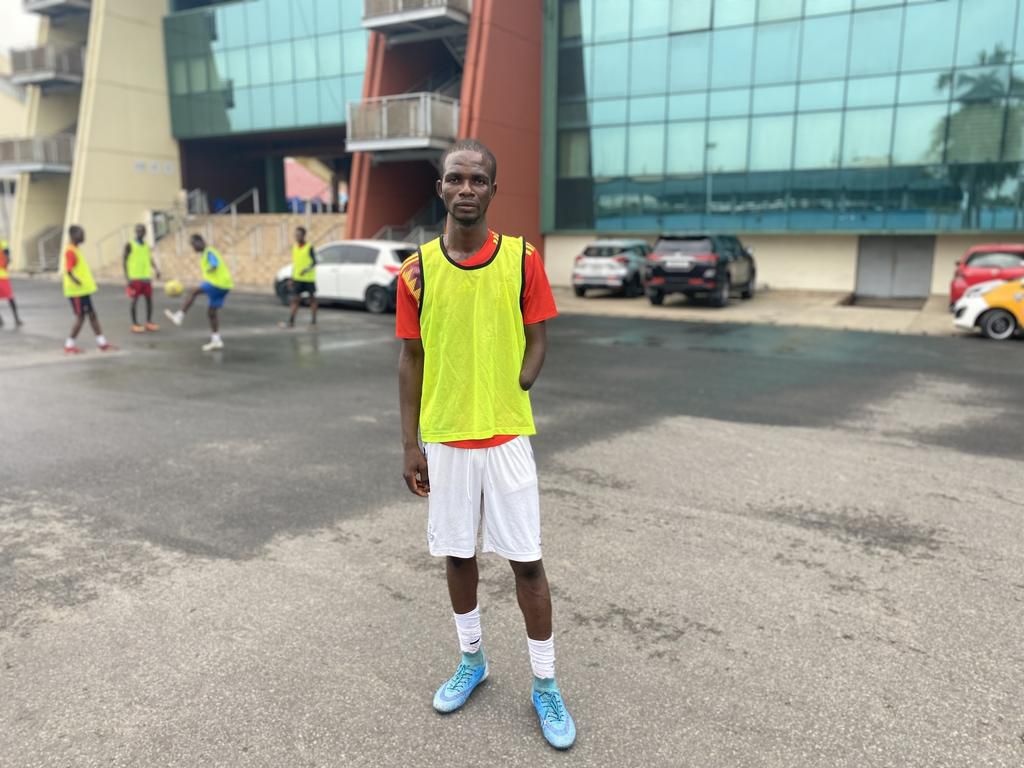
Atsu has settled in seamlessly since joining the Ayawaso CP football club, where he plays as a goalkeeper and sometimes as a makeshift defender due to his versatility. He is one of 30 players on the books of the club, which is committed to finding a purpose for sportingly talented people of his ilk.
Atsu’s story certainly resonates with teammate Placidio Gume, who has equally gone through adversity to realise his dream of playing football. Placidio was diagnosed with cerebral palsy at birth but, despite his spastic hands, he always strived to hack a career as a sportsman.
Born in the Upper West Region of Ghana, Placidio made a name for himself there as the physically challenged boy who always gave his abled peers a run for their money during sporting contests.
He grew up being actively involved in different para-sports like cycling, swimming and athletics, before switching to CP football.
Sometimes he struggled due to the inhospitable nature of the facilities and pitches in the North, most of which are not only disability unfriendly but also dusty, rocky and unfit to host games at any level. What has kept him going, though, is an innate determination to succeed and take his family out of poverty.
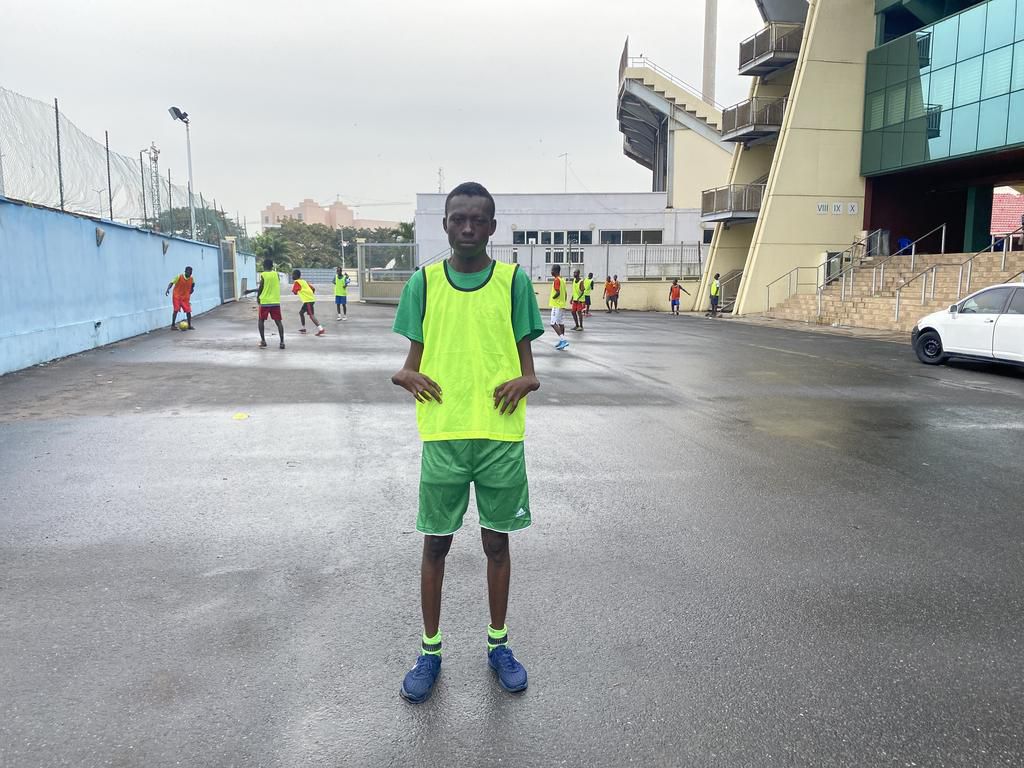
“I joined the Ayawaso CP football team just last year,” Placidio divulges to Pulse.com.gh. “I was playing with able people when I was young but because the parks in the Upper West Region, where I’m from, are not inclusive, I always found it difficult to play due to my CP condition.”
Placidio, who operates as a midfielder for the Ayawaso CP football club, is widely regarded as the most intelligent player in the team; not just because of his multiple talents and cleverness with the ball, but also due to how educated he is.
A graduate of the University of Education in Winneba, he holds a diploma in Community-based Rehabilitation and Disability Studies.
“When I went to the University of Education, Winneba, and read about disability and sports, I realised that there’s inclusivity in sports,” says Placidio. “So I started contacting people about disability and sports, and fortunately I met Mr. Emmanuel [Akpabli] and he was able to include me in the CP Foundation.”
Akpabli, whom Placidio makes reference to, is the founder of the Ayawaso CP football club, which is the first and currently only organised CP team in Ghana. It was Akpabli’s vision that birthed this wonderful club that is geared at promoting inclusion.
His general idea about life is that everybody can be useful when placed in the right environment and given the necessary support. He’s been single-handedly funding the expenses of the club and its players since 2018 and his goal is to see these athletes with special needs reach their maximum potential.
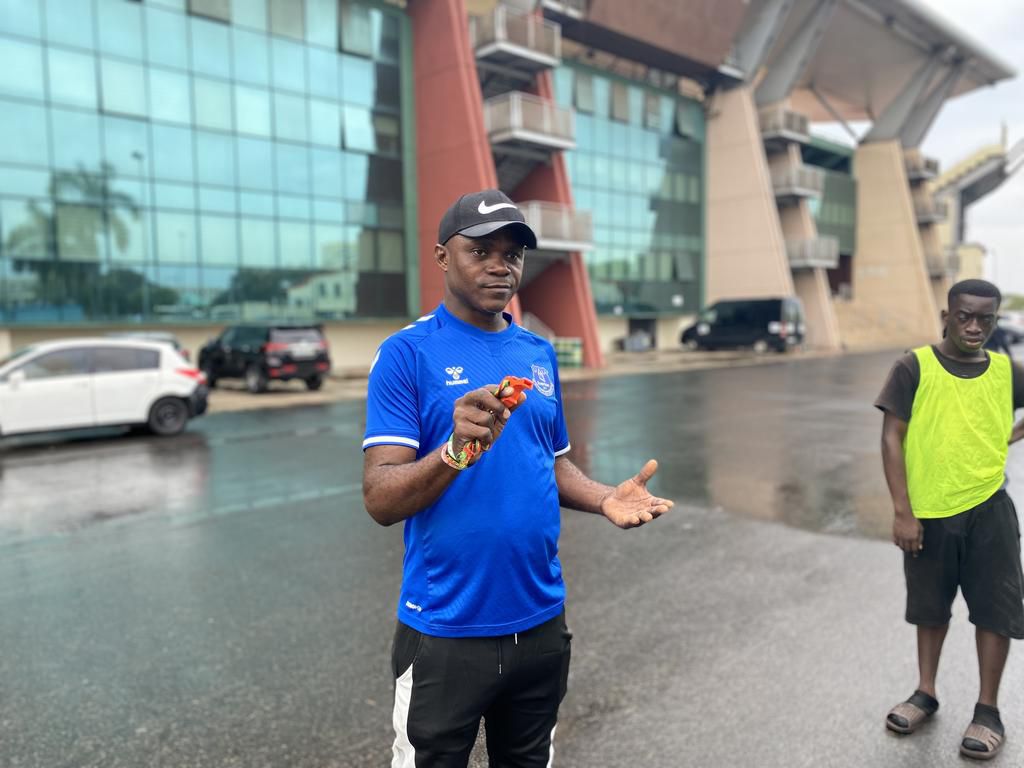
“We’ve been involved in CP football for quite some time now and we really want to brand it to the national level, even though the mother federation is there,” Akpabli effuses. “We are developing it through the club level.
“When you look at the nature of their disability, they go looking for jobs and nobody wants to employ them. So they put their all here. The Ayawaso CP football club is doing marvelously well in training these boys to make sure they maximize their God-given talent.”
Data from Ghana's Population and Housing Census estimates that at least one child in every three households has a disability and is not in school because of their condition.
For babies, the data suggests one in every 300 is born with cerebral palsy. As damning as these statistics are, efforts towards disability inclusion remain on the periphery of national discourse.
According to the Center for Learning and Childhood Development, about 22,000 children are estimated to live with cerebral palsy in Ghana, while the death rate among kids with the condition here is 15 times that of the average in other developing countries.
The Center also established that more than 85% of children with cerebral palsy in the country do not attend school, with some caregivers found to deliberately hide their children due to fear of social stigma.
Even worse, the Center established that some parents of children with cerebral palsy felt so ashamed that they committed infanticide (the act of deliberately causing the death of a child).
A 2019 report by the National Institute of Health (NIH) said some parents who gave birth to children with cerebral palsy in Ghana were “accused of bringing forth ‘spirit children’, some referred to the children as ‘nsuoba’ (river child), whereas others were blamed for bringing taboos to the families of their husbands.
“Participants recounted that they were pressured to kill their children with CP so as to avert future calamities,” it added.
In the same report, some parents said they felt anger due to the difficulties they encountered in taking care of their children with CP, while others admitted to feeling depressed due to a combination of guilt, sorrow and pity for their innocent kids.
A mother of two, both of whom have been diagnosed with CP, is quoted as saying in the NIH’s report: “I am a Christian, but now I doubt my faith; I doubt if there is any God. One child with this condition is already a headache, I have two!
“What did I do wrong to merit this? I don’t believe in any God because he is not there to see my plight. I walk around always questioning myself, what I did wrong. Now, I’m scared to even think of having any more kids.”
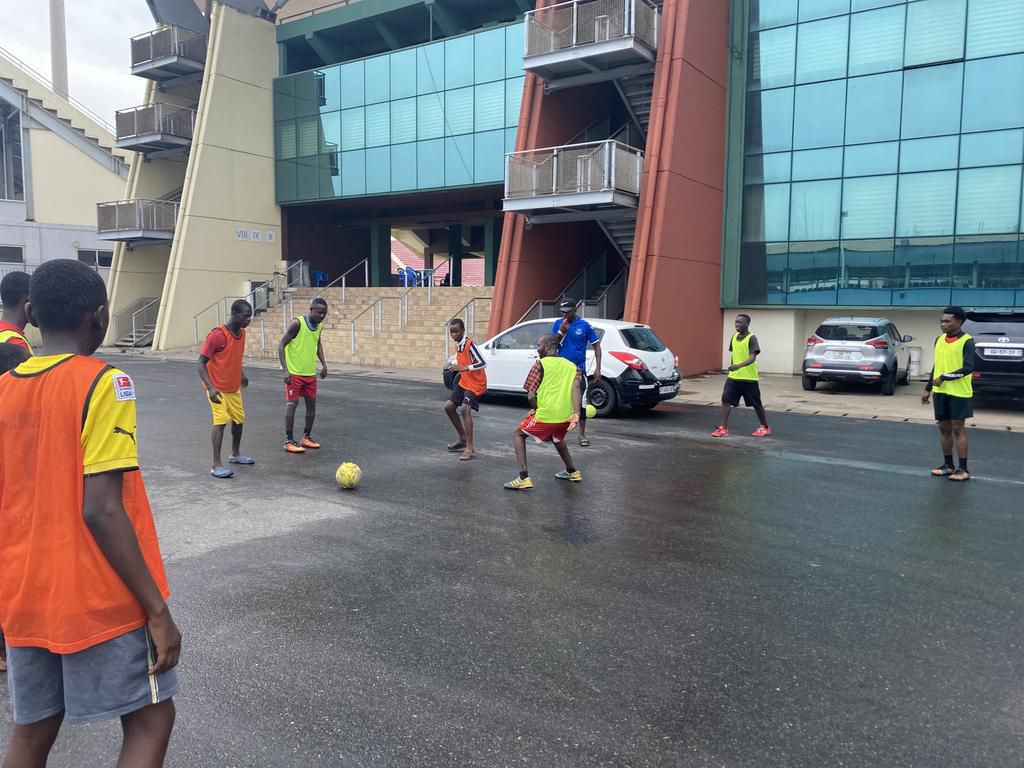
In many first-world countries, persons living with cerebral palsy have access to rehabilitation therapy to help them steadily regain their physical, mental, social and learning capabilities. Here, the reverse is true.
Nothing of the sort is available to many living with cerebral palsy in Ghana and the situation is worse for those from poor backgrounds.
The sad reality is that none of the players of the Ayawaso CP football club is from a rich home. Some were picked from the streets by Akpabli, while others were quite literally “dropped off” at the club by parents to evade the expenses and responsibilities that come with taking care of persons with special needs.
This increases the burden on the club, which often feeds, clothes and in some instances provides shelter for the players.
“I don’t remember the last time that I wrote a letter and received funding from anywhere,” Akpabli fumes. “It’s quite pathetic that we see donations goings into most things but none comes to the development of disability sports.”
It takes a lot to carve a career as a sportsman, but it takes even more to do well in disability sports. While the normal footballer requires a mixture of talent, hard work, character and a stroke of luck to make it to the top, all the aforementioned are still not enough for people like Abor and Placidio.
In their cases, they need to work twice as hard to keep up their fitness levels and also have to overcome doubts and pessimism from even their loved ones just to chase their dreams.
Sayuti Alhassan, the first-choice goalkeeper of the Ayawaso CP football club, knows a thing or two about going through such a depressing situation, having been prevented from playing football by both his parents and teachers when he was young.
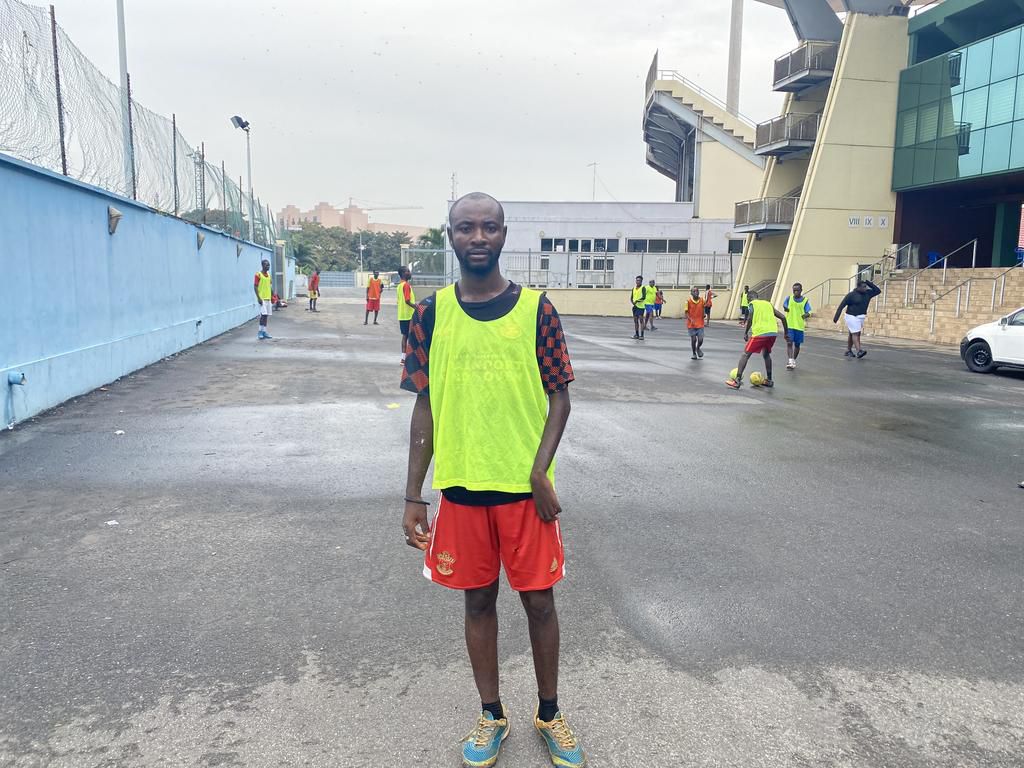
Sayuti has hemiplegia – paralysis on the left side of his arm – which makes it difficult for him to effectively use that hand. He was diagnosed with cerebral palsy at a very young age and wasn’t allowed to be involved in sports, even when he desperately wanted to.
“While in school, my teachers advised me to stop [playing football] because I wasn’t well and could get hurt at any time,” admits Sayuti. “But I told them that I liked sports, although my teachers never spared me anytime they caught me playing.
“I’ve always wanted to play football but the help is not there. Even my father told me to stop playing football, but I told him I couldn’t. Seeing as there was very little help coming my way, I decided to listen to my father and rather focus on my education. But then I saw a goalkeeper in post for the amputee team and realised he was only using one hand.
“That was when I realised I could also do it. So I started playing again. When I found out there was a cerebral palsy football team around, I joined them.”
Sayuti’s father may have been reluctant to allow him to play football, but the encouraging thing is that some families in Ghana are gradually accepting the fact that their physically challenged children can be sportsmen and women.
Placidio’s parents, for instance, back his foray into sports, and he has always had the support of his family to pursue his dreams.
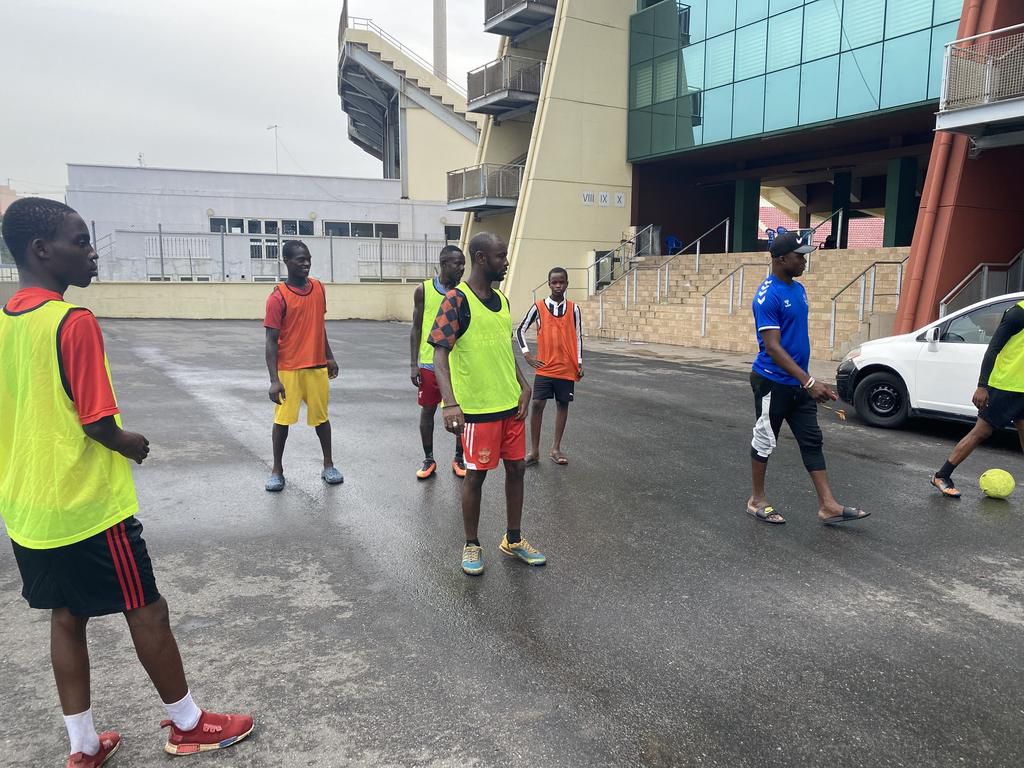
“His [spastic] hands have been like that since birth, but there’s a lot he does. He started playing football with his colleagues while in primary school,” said Maxwell Gume, the elder brother of Placidio.
“His journey hasn’t been easy due to a lack of finances. But we support him. I feel proud of who he is and what he’s becoming. He’s never been the shy type. He decided to move to Accra to pursue his football career because accessibility here [in the North] isn’t that great.”
Cerebral palsy football, like many para-sports, is still only fledgling in Ghana. Investment remains negligent, while a regional or national league is also yet to be established.
And while scores of persons with cerebral palsy would’ve loved to play football, the availability of just one CP football club in the country means there are a lot more whose talents remain untapped.
Even those lucky to be chasing their dreams at the Ayawaso CP football club aren’t without their challenges. Ordinarily, they should just be focusing on the game, but the club’s struggles with finances mean none of them is a full-time footballer.
Each player has a part-time job, which they rely on to raise money to take care of themselves and to supplement the little support they get from the club.
“I double as a graphic designer due to the economic situation in the country,” Sayuti remarks. “Usually when I’m broke, I call my manager and he sends me MoMo (mobile money). But he also has a family, so sometimes I understand him when he says he isn’t able to provide for me.”
The story is no different for Placidio, who often travels back home to the Upper West Region to tend to his farm. “When I’m back home during the raining season, I farm.”
These excesses sometimes distort the training of the players. It’s already an arduous task for a physically challenged person to be involved in such a demanding sport, and combining football with extra work only makes it harder for these players.
Mustapha, however, believes his players are doing their best in the situation they find themselves in. The coach has not only been impressed by their commitment to training, but also by how quickly some have improved in terms of fitness.
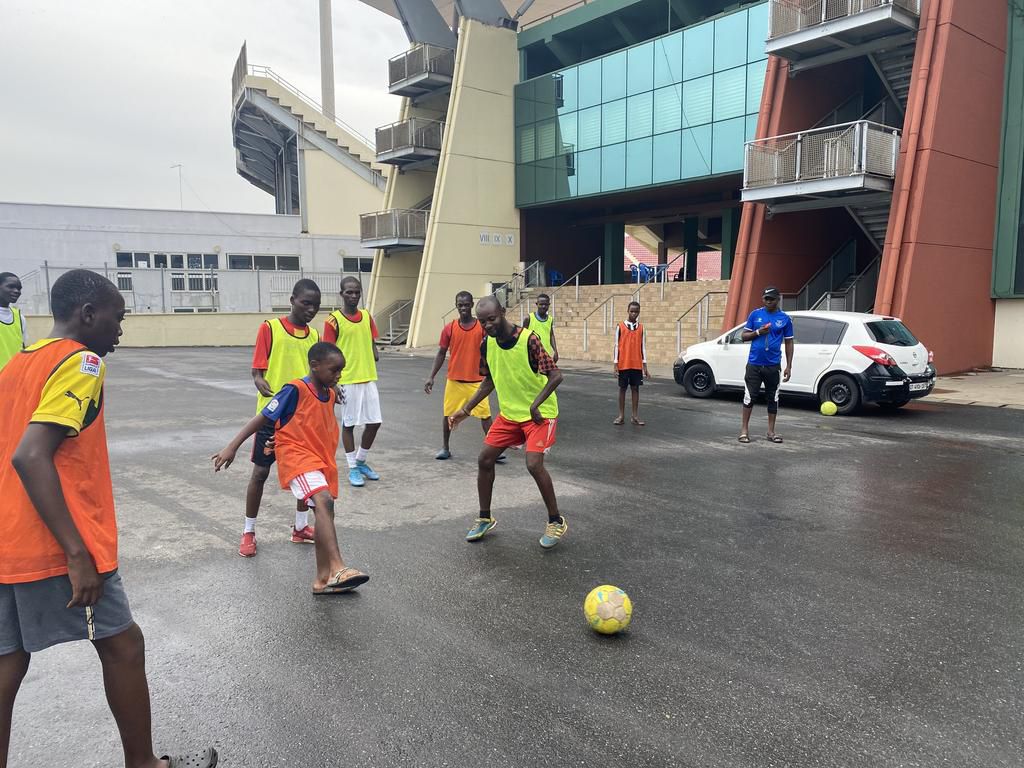
“When we started, their standard was low,” Mustapha quipped. “We started with the physical aspect by always going to the beach to train. We train in the sand to strengthen their thighs and legs.
“Then we started with the mental training too. With the combination of the two, everything worked perfectly, because the talent is already there.”
Ghana is currently ranked 33rd by the International Federation of Cerebral Palsy Football (IFCPF), but the country is still yet to qualify for a major tournament.
Making it to the IFCPF World Cup or the IFCPF World Championships remains the long-term goal for the national team, although that won’t come cheap. In terms of talent, the team is probably as good as any but talent alone is not enough and Ghana fails to tick any other box that matters in this regard.
“We’re trying to make sure that we have good mechanisms in place, that these players are trained very well to form a unique national team,” says Akpabli. “Two years ago, we qualified for the World Cup in Spain but because proper structures were not put in place, we were not able to make it.
“We’re now building for the World Cup again and we hope majority of the players will be selected from this team.”
As it stands, the Ayawaso CP football club is the only thing keeping the dreams of these footballers alive. With the Ghana Cerebral Palsy Football Federation also facing a leadership crisis due to internal wrangling, CP football still has a long way to go to become a thriving sport in Ghana.
But hope is a strong thing and these players have it in abundance. Not only are they very confident of soon becoming the first group to qualify Ghana for the IFCPF World Cup, but most of them also see themselves playing abroad in the next few years.
“If I get the opportunity, I’d like to play outside the country so that I can support my people down here, especially people living with disabilities like me,” asserts Placidio.
“It’s one per cent chance, 99% faith but…” Abor interjects, adding: “… In the next few years, I want to play football abroad. That is what I want to achieve in the future.”
Both Placido and Abor are still very young but time is not on Sayuti’s side. Despite approaching 30, though, the goalkeeper is confident of making a breakthrough in his career like some of his idols have.
“I want to one day become the goalkeeper for the senior CP national team and also secure a move to a team abroad,” Sayuti expounds. “I’m currently 29 but I know goalkeepers have longevity in their careers, so I keep on training and waiting for my opportunity.”
If the faith of these players is profound, the belief of their coach is even more infectious. Mustapha believes his team is ready for the big stages, even joking that they can go toe-to-toe with the teams in the Ghana Premier League.

He is, however, cautious and aware of the limitations of the Ayawaso CP football club, who are forced to train with abled teams and play on standard-sized football pitches due to the unavailability of specifically-designed amenities for CP football.
Citing the medals that other para-sports have won for Ghana despite the lack of support, Mustapha believes CP football will equally thrive if the sport gets a fraction of the investment pumped into Ghana’s national football teams, with the latest being the $5.1 million spent on the Black Stars during the Qatar 2022 World Cup.
“We need more CP football teams around, to even have a league and to promote those interested and bring them out of the streets,” the trainer rallies. “There are many of them on the streets, the stigmatisation they face alone is not easy.
“There’s something I want everyone to understand: disability sports have provided more laurels and medals for Ghana than any other sport. They are the ones bringing medals, promoting the name of Ghana and putting the country on the map.”
And he’s right!
)
)
)
)
)
)
)
)
)
)
)
)
)
)